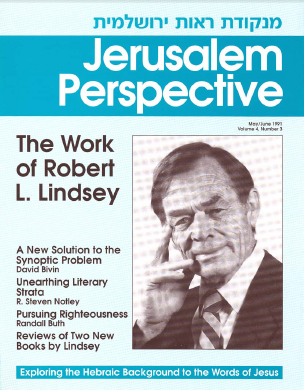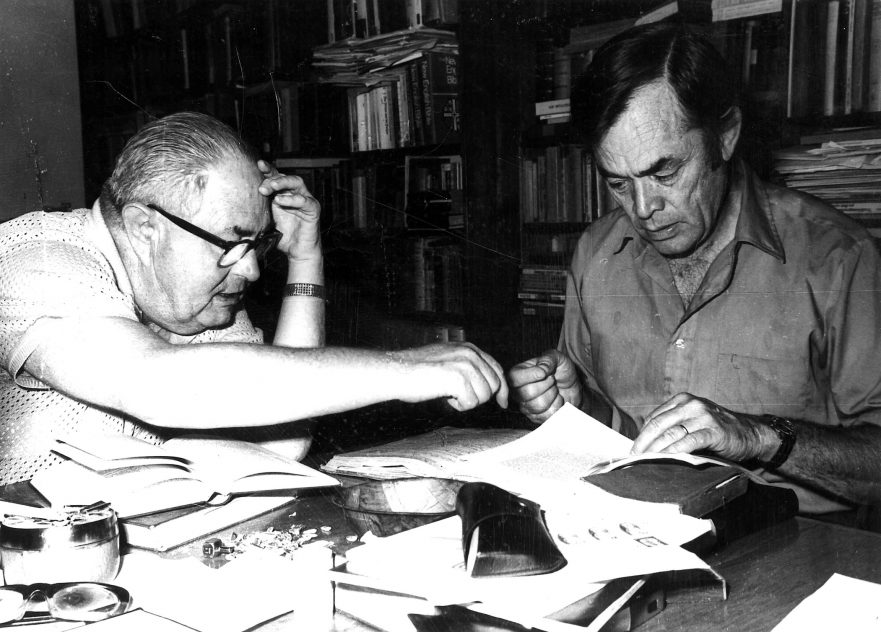This article originally appeared as a sidebar to “Unearthing Literary Strata” in issue 32 of the JP magazine.
Prof. David Flusser of the Hebrew University of Jerusalem has long espoused Lindsey’s synoptic theory. Flusser’s research on the Synoptic Gospels is based on Lukan priority, and he teaches his students “Lindsian” theory.
Here are some of Flusser’s remarks from his published works about Lindsey’s contribution to synoptic studies:
Lindesy’s approach…opens a window that allows us to get closer to the original version of the life and sayings of Jesus.
From יהדות ומקורות הנצרות [Judaism and the Sources of Christianity] (Tel Aviv, 1979), 31.
It seems clear that Lindsey’s observations have provided a decisive new clue to understanding the synoptic relationships and an equally important clue to the correct approach to the Gospel of Mark. …The advantage of Lindsey’s theory is that it accepts the view that the Gospels of Matthew, Mark and Luke depend on two main sources, and that there also exists a pattern of interdependence between these three Gospels. Lindsey’s delineation of sources has, as far as I know, never been proposed.
Foreword to Robert Lindsey’s A Hebrew Translation of the Gospel of Mark (Jerusalem, 1973).
Without a serious literary analysis of the first three Gospels it is impossible to know what was probably written in the ancient Christian sources which are behind them…. I accept the [synoptic] theory of Robert Lindsey…it is important that Lindsey has shown that the Synoptic Gospels are based upon an old account which was known both to Matthew and Luke, and that Mark has completely rewritten his sources. Another point of Lindsey’s theory is that Matthew used both the old account and Mark.
From “A Literary Approach to the Trial of Jesus” in Judaism and the Origins of Christianity (Jerusalem, 1988), 588.



![David Flusser [1917-2000]](https://www.jerusalemperspective.com/wp-content/uploads/userphoto/21.jpg)




























































































